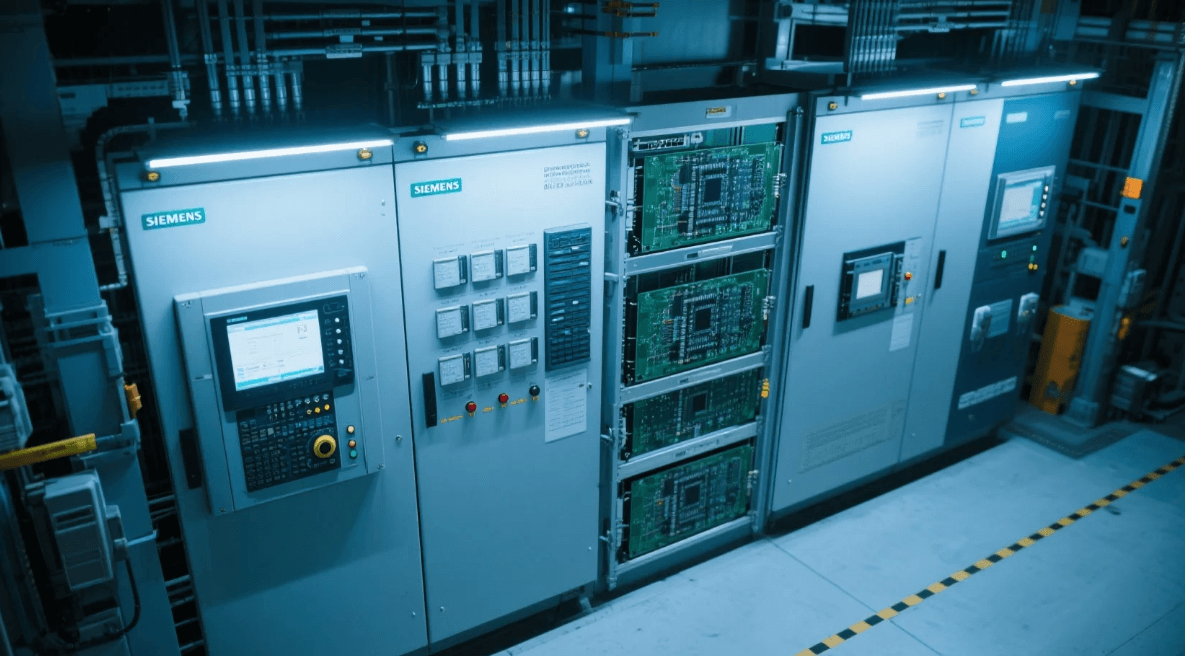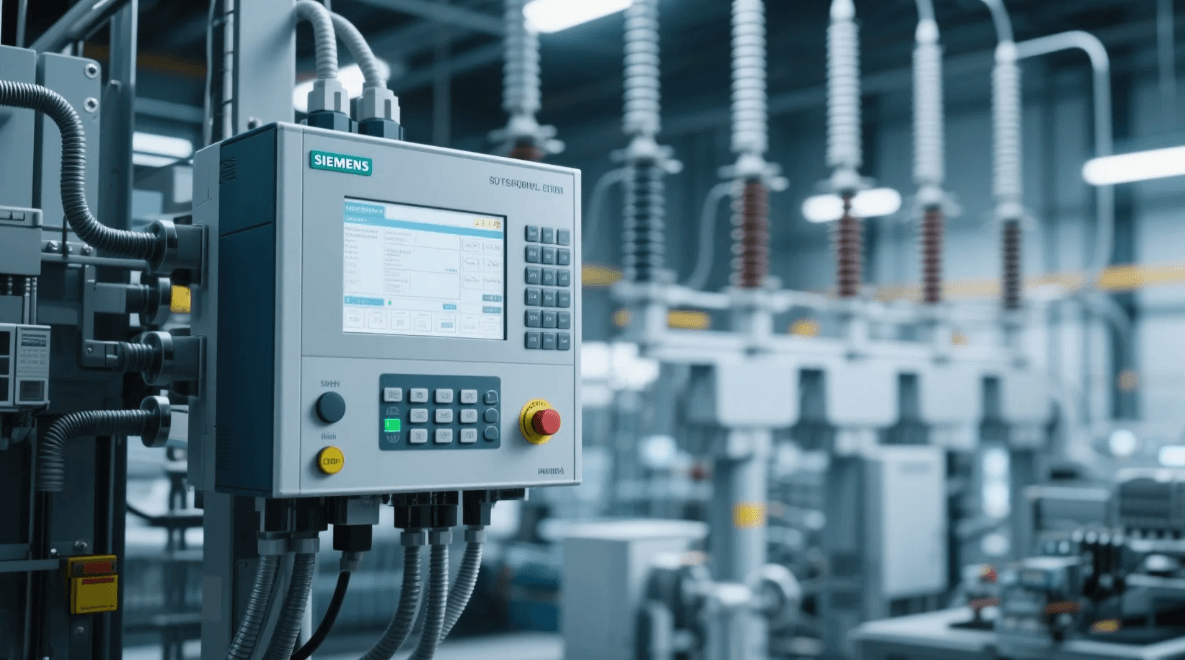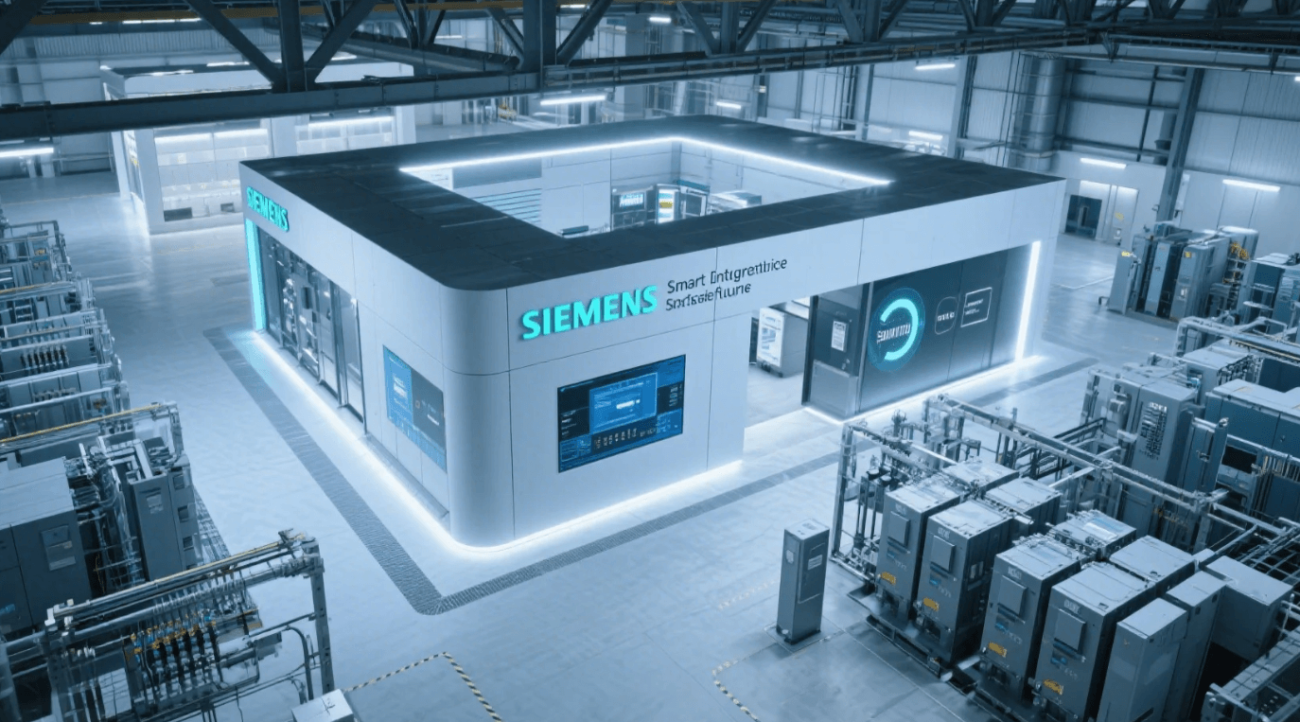- Allen-Bradley
- BANDERA
- Baumer
- Bosch Rexroth
- Danfoss
- Eaton
- Festo
- Honeywell
- IFM
- Leuze
- Logitech
- Mitsubishi
- MTL
- Nidec
- Omron
- PEPPERL FUCHS
- Módulo de diagnóstico avanzado
- Cable de conexión
- Codificador
- Barrera de bus de campo
- Multiplexor HART
- Sensor de inclinación
- Sensor inductivo
- Unidad de evaluación RFID
- Junta de Terminación
- Sensor ultrasónico
- Actuadores de válvulas
- Barrera de seguridad y aislante
- Barrera de protección contra sobretensiones
- Contacto en Phoenix
- PILZ
- PULS
- Rexroth
- ENFERMO
- Siemens
- Schneider
- Turck
- Wago
- Yokogawa
El papel estratégico de los sistemas de control industrial de Siemens en la industria moderna

Introduction: Why Siemens Matters in Industrial Automation
In today’s digitized economy, Sistemas de control industrial Siemens have become a pivotal force behind smart manufacturing, grid automation, and efficient process control. Designed to handle complex industrial tasks with precision, Siemens’ solutions continue to shape how enterprises operate globally.
Siemens’ Legacy and Global Influence
Founded over 170 years ago, Siemens AG has become synonymous with innovation in industrial automation. Its control systems are now used in factories, energy plants, and smart grids worldwide. The global trust it commands is grounded in long-term reliability, high engineering standards, and continuous innovation.
Key Features and Competitive Advantages
Modular Architecture for Flexible Implementation
Sistemas de control industrial Siemens offer modularity, making them adaptable to small and large-scale applications alike. This modular approach also simplifies future upgrades and reduces integration costs.
Integration with Industry 4.0 Standards
Engineered with digital transformation in mind, Siemens systems seamlessly integrate with Industry 4.0 protocols, enabling real-time data analytics, remote monitoring, and predictive maintenance.
Superior Safety and Compliance
Certified across global safety and quality benchmarks, these systems help organizations comply with ISO, IEC, and regional safety standards effortlessly.
Application Scope Across the Electrical Sector

Power Generation and Distribution
In power stations and grid substations, Sistemas de control industrial Siemens optimize load balancing, energy storage control, and fault detection, all while improving power reliability.
Building Automation
Facilities managers benefit from enhanced HVAC, lighting, and energy management, reducing operational costs and carbon footprints.
Industrias de procesos
From oil refineries to food processing plants, these systems ensure precise temperature, pressure, and fluid control, improving product consistency and reducing downtime.
Value for Electrical Industry Enterprises
Increased Operational Efficiency
Automation reduces the need for manual intervention, thereby minimizing human error and increasing output reliability.
Scalability for Future Growth
With increasing energy demand, scalability becomes a necessity. Siemens provides the infrastructure that supports expansion without replacing the core system.
Reduced Lifecycle Costs
Although initial investment can be significant, long-term savings are achieved through reduced maintenance, minimal downtime, and improved asset longevity.
Technological Innovation and Siemens’ Edge

Digital Twin Integration
Siemens leverages digital twin technology to simulate operations and predict outcomes. This leads to proactive decision-making and fewer operational surprises.
Cybersecurity by Design
All Sistemas de control industrial Siemens are designed with built-in cybersecurity layers, helping industries safeguard against emerging threats in operational technology (OT) environments.
Remote Configuration and Maintenance
Many tasks, from diagnostics to updates, can be performed remotely, saving time and avoiding on-site disruptions.
Looking Forward: Future Trends and Outlook
Integración de IA y aprendizaje automático
Siemens is investing in AI to allow smarter, self-adjusting control systems capable of learning from data patterns and environmental changes.
Sustainability and Green Engineering
Control systems now contribute to greener operations by managing renewable energy sources and minimizing waste through process optimization.
Global Standardization and Interoperability
Siemens’ commitment to open communication standards ensures its products remain interoperable with other systems, a key advantage in diversified environments.
Conclusion: A Smart Investment for Modern Enterprises
For enterprises in the electrical sector, investing in Sistemas de control industrial Siemens is more than a choice—it’s a strategic necessity. From energy efficiency to automation readiness, Siemens offers a complete ecosystem that not only solves today’s operational challenges but prepares companies for tomorrow’s demands.
Preguntas frecuentes
Q1: Are Siemens industrial control systems compatible with existing legacy equipment? Yes, many Siemens systems are designed to retrofit older installations with minimal disruption.
Q2: How do Siemens control systems help reduce energy consumption? They optimize power usage through intelligent load distribution, scheduling, and predictive algorithms.
Q3: Is technical support available globally? Siemens offers 24/7 global technical support, along with regional service centers for on-site assistance.
Q4: Can these systems be customized for unique industrial processes? Absolutely. Siemens provides tailored solutions through its modular and software-driven approach.
Q5: Are these systems suitable for small businesses as well? Yes, the modular architecture allows scalable implementation even for SMEs with budget constraints.


